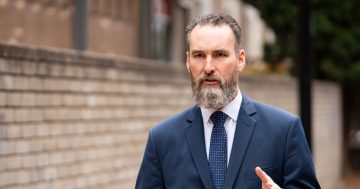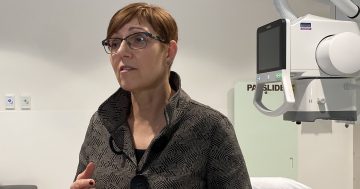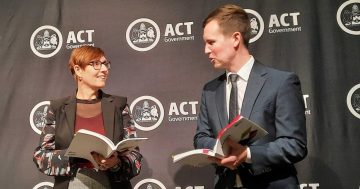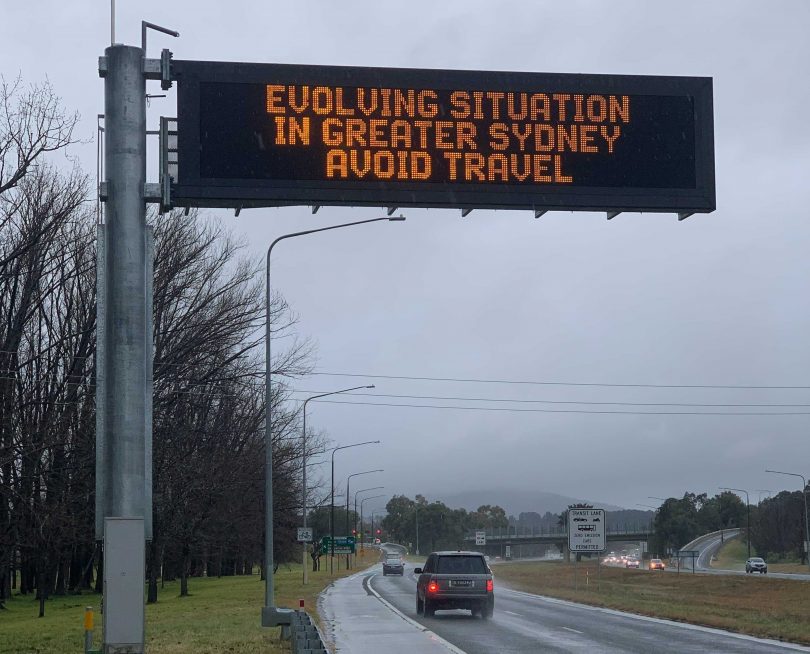
Residents have been advised to avoid Sydney due to the escalating COVID-19 situation. Photo: Morgan McGoogan.
The ACT is considering further restrictions on travel and movement as the COVID-19 Sydney cluster continues to grow.
Health Minister Rachel Stephen-Smith has urged people who have recently returned from the Greater Sydney region and arrived in the Territory before the stay-at-home orders came into effect to minimise their movements.
Canberrans are also advised to reduce the number of events they attend over the weekend and limit their exposure to people not in their immediate households or social and work groups.
Ms Stephen-Smith said local restrictions and additional travel restrictions are under active consideration if the situation escalates.
“While we remind the community on a regular basis to follow all of those COVID-safe behaviours, this time it is absolutely vital to reduce the risk of any outbreaks in the ACT and to keep the community safe and businesses open,” she said.
“I would say to all businesses, please do start planning for the possibility that density restrictions in the ACT may change in response to the escalating situation.
“We are seeing those cases escalate in Sydney and we just do not know what is going to happen next.”
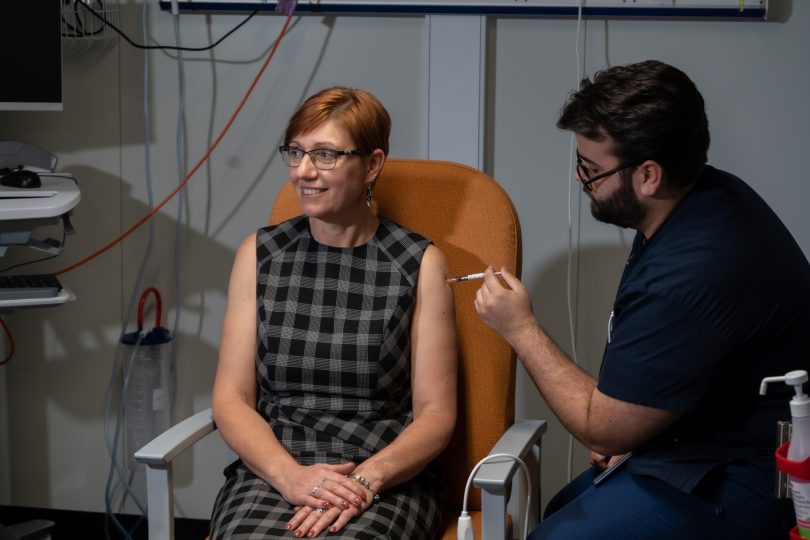
Health Minister Rachel Stephen-Smith has encouraged people to book in for the COVID-19 vaccine. Photo: Dominic Giannini.
The Bondi cluster has now grown to 36 people, including six new locally acquired cases overnight. Premier Gladys Berejikilian has called it NSW’s “scariest” period since the pandemic began but said authorities were doing a good job keeping the outbreak under control.
Around 290 people in the ACT are quarantining after visiting an exposure site, most of which are linked to the National Gallery. A further 1400 people have self-declared that they are subject to the new stay-at-home orders after arriving from one of seven local government areas in Sydney.
“We think that [number] seems quite high so we are looking at those declarations to advise people if they have been a little bit cautious, but we would prefer that people are more cautious, so we very much thank those 1400 people,” Ms Stephen-Smith said.
Just over 3750 people have completed the watch and assess declaration after being in the Greater Sydney region in the past 14 days.
The outbreak has caused testing wait times to blow out to up to three hours at the EPIC facility as hundreds of people queue to get a test.
Ms Stephen-Smith said the outbreak has also sparked greater interest in getting the jab.
“Almost 46,000 bookings are in the ACT system going forward, about 23,000 first doses and about 23,000 second dose bookings, so that is really great,” she said.
Almost 31,000 Canberrans, or 9 per cent of people above the age of 16, are fully vaccinated in the ACT.
One-third of the ACT’s adult population has had at least one dose and around 80 per cent of people over the age of 70 have had at least one dose as well.
Around 15 per cent of people between 70 and 79 in the ACT are fully vaccinated, and more than 20 per cent of people aged 80 and over are fully vaccinated.
New Commonwealth data released yesterday (23 June) revealed that the ACT’s Pfizer allocation will almost double in July and August to between 17,000 and 19,000 doses a week. This will increase to between 34,000 and 50,000 doses a week around October and December.
AstraZeneca doses will be phased out by the end of the year and will only be available upon request as a supply of the Moderna vaccine comes through, with the ACT receiving 1000 to 2000 doses a week from September.
This will then increase to between 7000 and 10,000 Moderna doses per week from October.
For the latest COVID-19 advice, visit ACT Health.
Original Article published by Dominic Giannini on The RiotACT.




